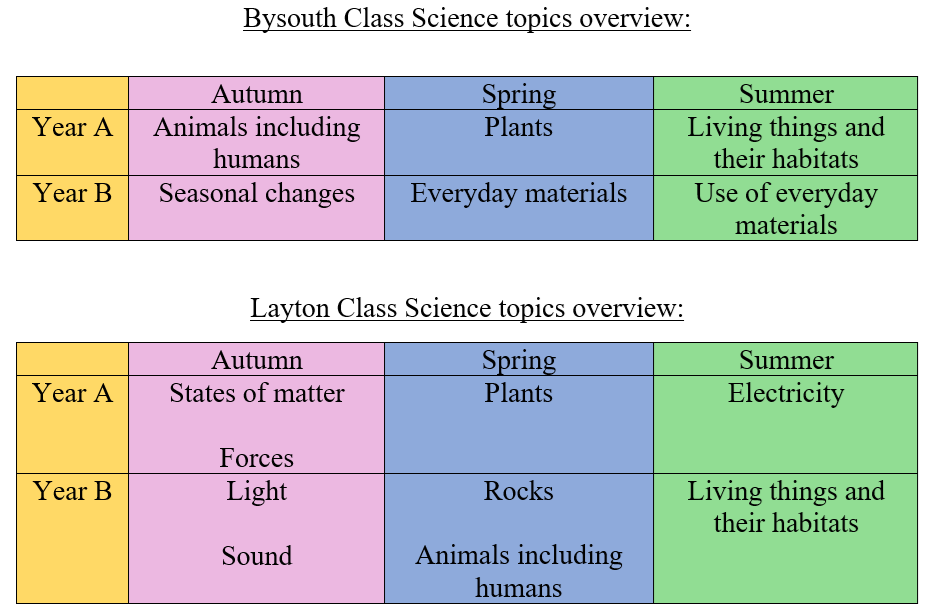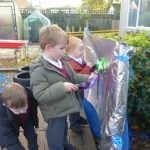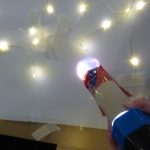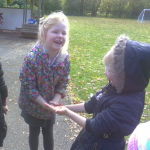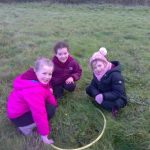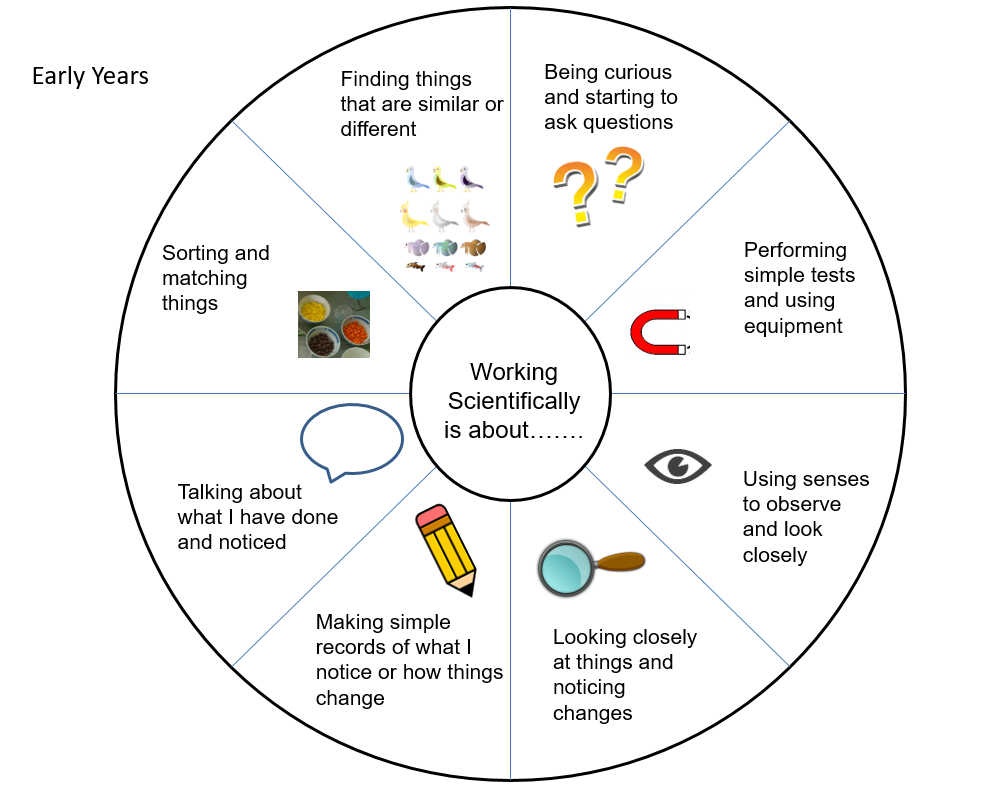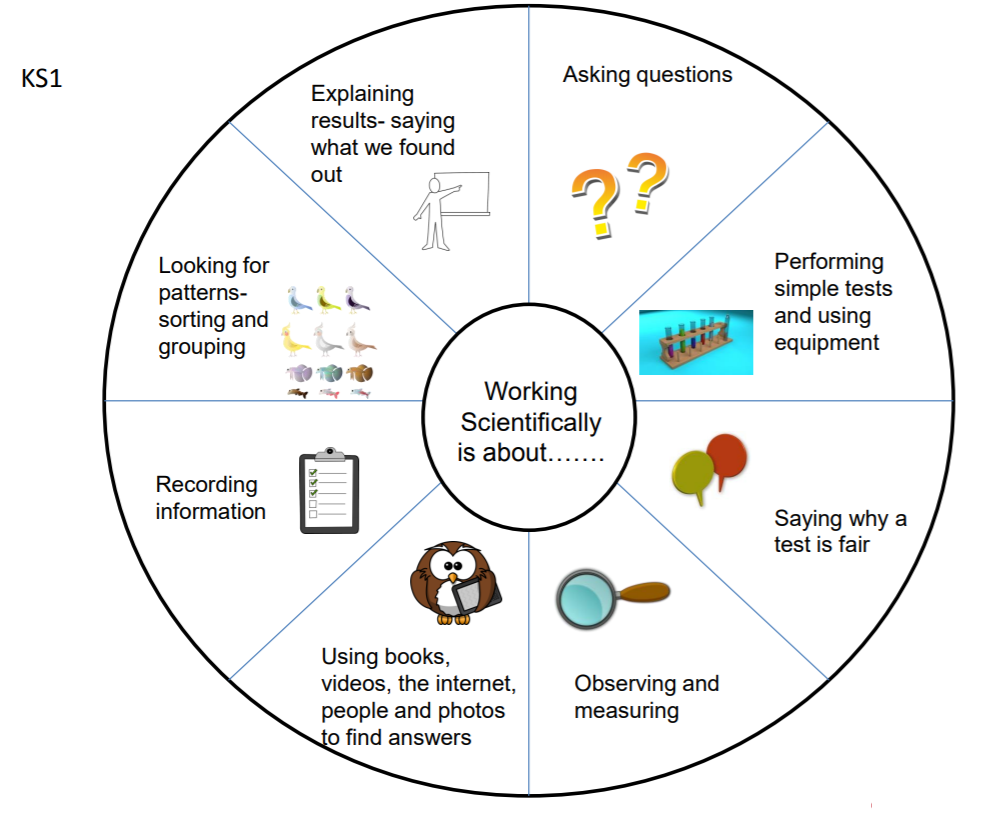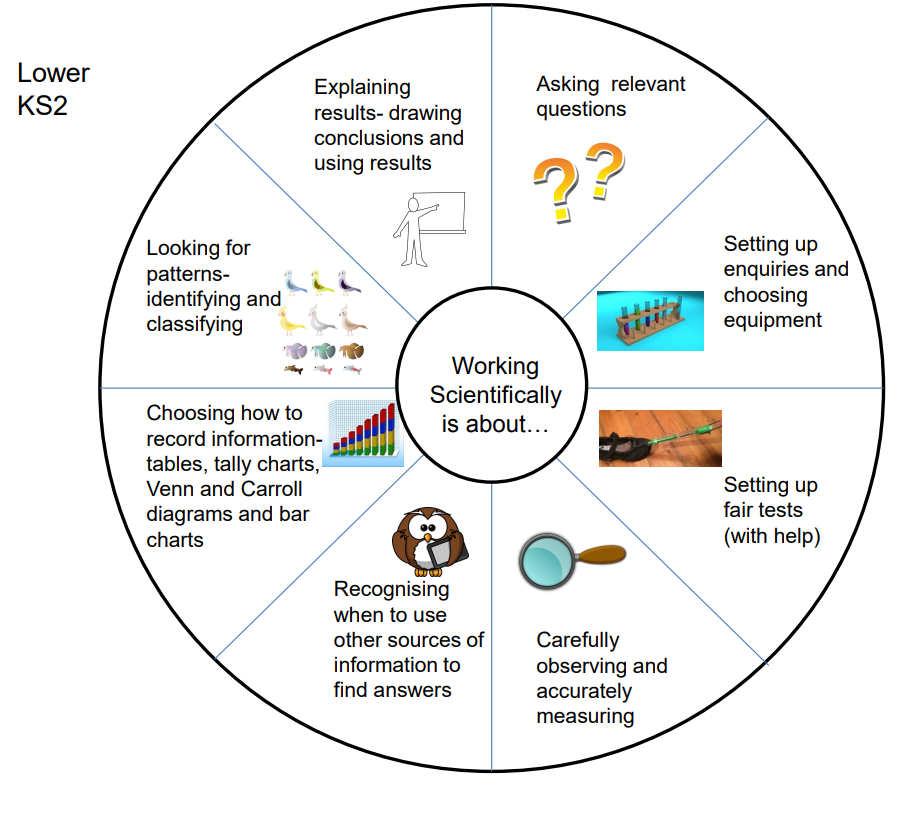At Reed First School, we believe that a high quality science education is best when practical learning allows children to embed the skills and knowledge which can be applied to help them understand the world they live in. We encourage all children to develop their scientific thinking by using their curiosity to pose questions and explore how to find the answers. This progresses to the planning and carrying out of investigations involving skills such as observing, predicting, safely using equipment, gathering data and making conclusions.
Science at Reed First School ensures the requirements of the National Curriculum are met across all year groups. Children are taught the specific disciplines of biology, chemistry and physics through planned scientific topics and investigations.
At Reed First School we use The Association of Science Education planning as a basis for our teaching and learning which we then adapt to the children in our classes. We have also developed a science curriculum map to ensure continuity and a progression of scientific skills and knowledge throughout our school.
We discuss the lives of famous scientists, studying their values and their work. In this way we can reinforce the idea that science affects our lives every day.
At Reed First school, we understand that it is important to know more and remember more. We use knowledge organisers as a resource to support and deepen pupils understanding of topics. We also revisit topics and ensure when we start a new topic a KWL grid (what we know already, would like to know, have learned) has been completed drawing on previous knowledge.
In the Early Years, scientific learning is mainly explored through the specific area of understanding the world. Early Years science activities are planned to meet each child’s learning and development requirements as well as taking account of the children’s interests. This ensures that we ignite children’s curiosity and enthusiasm which builds their capacity to learn. Children are immersed in scientific vocabulary and given opportunities to solve problems and to express their thoughts and ideas through adult led and child initiated activities.
At Reed First School, topics are taught across a two-year block and split into Year A and Year B. Please refer to the long term maps and curriculum map below.
Science in Early Years through Understanding the World
- How can we reflect light?
- Investigating light and dark
- We mix ingredients to see how they react.
In KS1, the children enjoy using their Science exploration area to further develop their working scientifically skills. For example, when the children were given glitter and were asked to pass the glitter around to other children in the class, the glitter represented germs, the children were amazed at how quickly the ‘germs’ can spread. The children have also enjoyed using their senses to explore materials and objects around them, in one activity the children were given different spices and herbs to smell, the children used scientific vocabulary to describe the different smells of the spices.
In Key Stage 2, our knowledge of materials continues by exploring states of matter. These photos show an experiment to observe changes of state in chocolate buttons as they are heated.
We work as practically as we can, for example, we had great fun working out which forces were needed to move the things in these pictures.
Within our Forest School lessons, we also build on our Science knowledge and our working scientifically skills. We regularly give children opportunities to use the local area to conduct their own practical investigations.
Our intent for the subject is shared with the children:
Reed First School Science Principles
At Reed First School we know good science occurs when…
- Pupils refer back to Knowledge Organisers to support and widen their learning
- Pupils respond to next steps to develop their knowledge and understanding
- Pupils are engaged and focused on developing their working scientifically skills
- Pupils are aware of what they need to do to achieve the next level
- Pupils enjoy their science lessons
- We use rich science vocabulary and learn new words
- Teachers have good subject knowledge
- Lessons are practical, investigative, challenging and fun
- Lessons are safe, well planned and resourced
- All pupils are motivated and engaged in their learning
- Pupils are challenged at every level in all lessons
- Children are aware of the purpose and objectives of their learning
- Children are able to ask questions and talk confidently about their learning
- Pupils develop their scientific knowledge and skills
- Science is linked to the pupil’s everyday lives
Our scientific skills progress as we move through the school. Our lessons enable all children to use the skills in our Working Scientifically Wheels.
